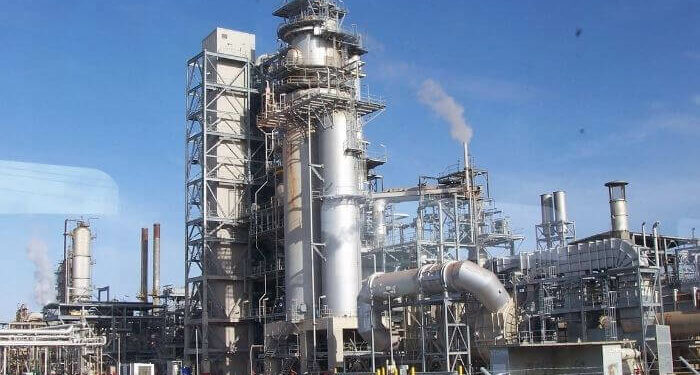How Dangote Refinery will improve Nigeria’s economy and foreign exchange
The NESG economist concluded that if the importation of refined oil is reduced, with Dangote Refinery supplying the manufacturing industry materials for its productions, the exchange rate problems would drastically reduce.
On Monday, January 15, 2023, the National Bureau of Statistics (NBS) said Nigeria’s annual inflation rate rose to 28.92% in December 2023 from 28.20% in November.
But with the Dangote Refinery coming onstream, many Nigerians hope the development would boost their country’s oil sector and impact its economy positively.
In a statement on Friday, January 12, Dangote Group said its $19 billion refinery in Lagos “Can meet 100% of Nigeria’s requirement of all refined products, gasoline, diesel, kerosene, and aviation jet, and also have a surplus of each of these products for export.”
What does Dangote Refinery mean for Nigeria?
Nigeria is one of the world’s leading oil-producing countries but due to a lack of functional refinery, all its crude oil is exported for refining and then imported back into the country.
In a bid to meet domestic demand, Nigeria imports about 60 million barrels of gasoline per day according to the data provided by the NBS.
This situation subsists because virtually all four state-owned refineries in Port Harcourt, Warri and Kaduna have been non-operational for years.
With the activation of Dangote Refinery, and the government’s plan to also start operations at its 60,000 b/d refinery in Rivers State this year, Nigeria is expected to end gasoline imports.
How will Dangote Refinery affect the Nigerian economy?
In his analysis of what the Dangote Refinery portends for the Nigerian economy, macroeconomic research analyst and economist at the Nigerian Economic Summit Group (NESG), Shakirudeen Taiwo, submitted that the facility, if efficiently run, would impact positively on all the sub-sectors of the Nigerian manufacturing sector.
He also noted that in the last couple of years, the oil refining sub-sector of the manufacturing industry has been running negative because of the poor conditions of the country’s four refineries.
However, if the refinery works as anticipated, its productivity is expected to significantly improve the total output of the country’s manufacturing sector and external sectors, most especially the trade and exchange rate.
“The first thing the Dangote Refinery will do to the Nigerian economy is to improve the performance of the manufacturing sector with the 14 sub-sectors underneath and one of them is the oil refining I earlier mentioned. So, oil refining will turn from negative to positive,” Shakirudeen explained.
He analysed further that the operations of the Dangote oil refining facility will improve the forward linkage sector, where the product of one industry is supplied as materials for another industry.
“Fuel is not the only output of oil refining, petrochemical industry too will build on it, like the fertiliser and plastic industry. A lot of other companies such as logistics, transport and trade industries will build on it. If the refinery is efficiently run, the forward linkage sector that relies on the output of the manufacturing sector will improve.
“That means the performance of the overall industrial sector which includes construction, and manufacturing in Nigeria will improve and their output will increase.”
According to the analyst, in the long run, the revival of the oil industry accentuated by the refinery would improve the economy if the forward linkage sector maximally leverages the output of the refinery.
“The effect of this on the economy is that, first, the Nigerian economy will recover before it grows. The oil sector will also boom because the sector will be producing not only for export but also for local production. So, generally, the economy will improve.
“However, the degree of the improvement will be determined by the efficiency of the refinery and how other forward sectors take advantage of it,” Taiwo submitted.
What will this do to the exchange rate?
Nigeria is adjudged to be an import-dependent nation with refined petroleum being the most-imported product.
According to the Observatory of Economic Complexity, Nigeria imports refined products primarily from the Netherlands, Norway, the United Kingdom, Belgium and India.
This and other commodities Nigeria imports for local consumption contribute to the pressure on foreign exchange.
However, if the country stops or reduces its importation of refined oil with the Dangote Refinery filling the gap, the pressure on FX would reduce drastically.
Shakirudeen maintained that when the refinery becomes fully operational, it will produce raw materials for intermediate goods that are hitherto imported. This according to him would further reduce the pressure on FX and stabilise inflation.
“About 85% of the components that contribute to inflation in Nigeria have something to do with importation and FX. So, if the FX pressure reduces, the inflation will be stable. It might be at 20% for a long period, it will drop later, but stability is the first thing,” he said.
“Some of the components of inflation that go with the exchange rate include food inflation. Food accounts for around 43% of inflation in Nigeria. Food is linked to transportation which has something to do with fuel and fuel has something to do with importation.”
The NESG economist concluded that if the importation of refined oil is reduced, with Dangote Refinery supplying the manufacturing industry materials for its productions, the exchange rate problems would drastically reduce.
Source:norvanreports


